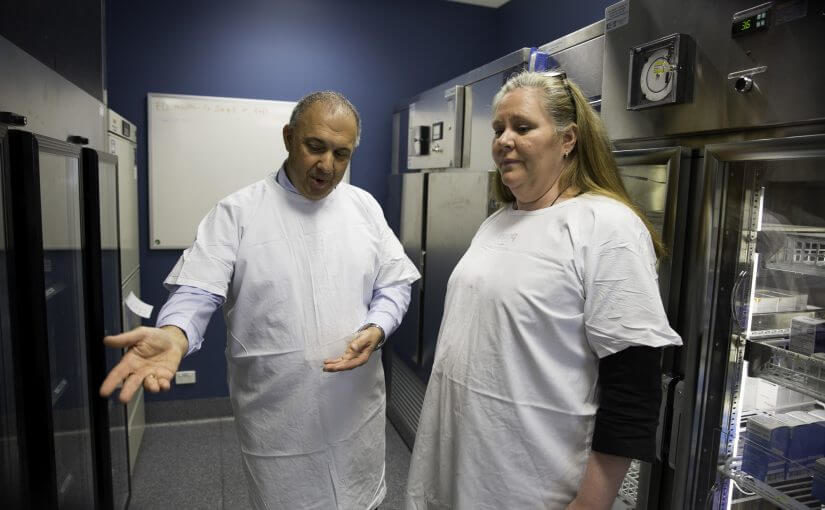Fifty-one year old Karen van Gorp has learned the value of pathology through her diagnosis and treatment for stage IV melanoma.
Karen is a mother of three who was diagnosed with skin cancer after finding a mole on her back in January 2012. In February 2013 she found a lump under her arm; her doctor ordered an ultrasound and a needle biopsy to investigate and stage IV melanoma was confirmed.
After diagnosis, Karen’s prognosis was poor; at the time, treatment options were limited and she was told to ‘get things in order’.
Karen said, “I wasn’t prepared to take that; I have a six year old, a twelve year old and a fourteen year old to think about.”
Determined not to give up and to do everything she could to tackle the cancer, Karen did some research and discovered that clinical trials of some new immunotherapy drugs were taking place at only two sites in Australia, Melbourne and Perth.
Fortunately, Karen was accepted into the Melbourne drug trial, she now flies in every fortnight from Adelaide to receive treatment.
Pathology is an important part of the clinical trial process and Karen has blood tests every fortnight to monitor how she is responding to treatment and any side effects of the drugs.
Karen is now involved in several trials that rely on her original tissue sample and blood tests to identify why treatment is working for her but may not be effective in other patients.
Karen said, “The team at the hospital are magnificent.” Her health quickly improved after treatment began in October 2013, “Within one month I had a turnaround, tumours throughout my body were healing,” she said.
Pathology’s role is crucial in continuing to monitor Karen’s progress and how the drugs may be affecting her body.
Karen said, “I’ve had lung inflammation as a side effect. I’ve been given a puffer to help with that and I know another woman on the trial who had a liver problem that was picked up by blood tests. The drugs can have various side effects on different organs so pathology testing is really important.”
Pathology’s role in fighting cancer also goes beyond monitoring.
“I’ve given my consent for the team to slice up the tumours I’ve had removed for research and to put in the cancer bank,” said Karen.
The tumours Karen had removed will be stored by the Victorian Cancer Biobank alongside thousands of other specimens which help researchers to better understand cancer and improve diagnosis and treatment.
Karen receives incredible support from family and friends, and says it would be very hard to do this without them. She is also a facilitator for Melanoma Patients Australia who run support groups and provide information to people with melanoma, their families and friends.

